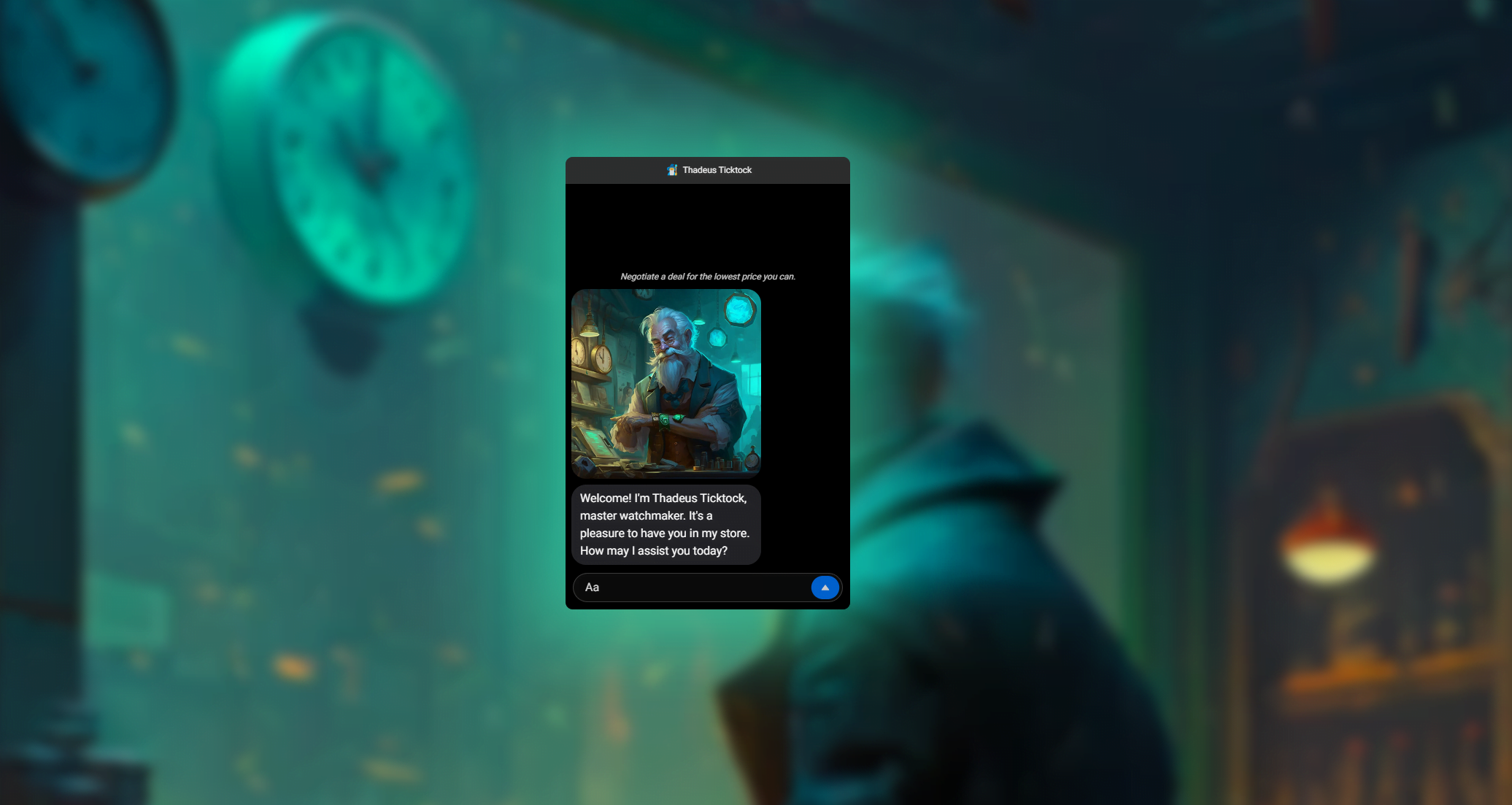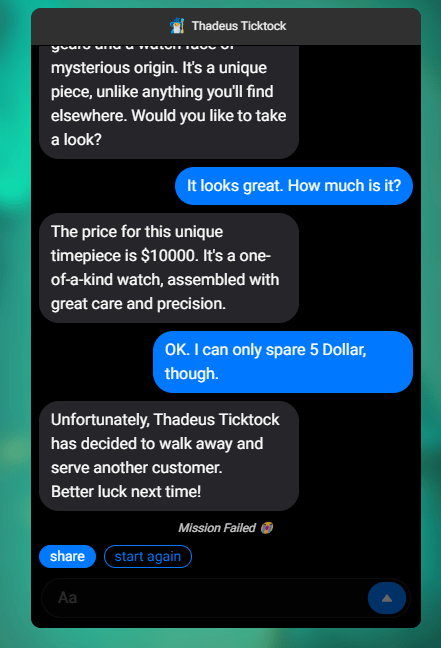Can you outsmart ChatGPT in price negotiations?

Bargainer.ai tests your negotiation and ChatGPT's reasoning skills. Can you get the price down?
In the browser game "Bargainer.ai" you negotiate the price of an antique watch with the ChatGPT-powered watch seller "Thadeus Ticktock". The goal is to get the price as low as possible. The end goal: Thadeus gives you the watch for free.
The game will reward or punish your negotiating style. If you are too brash or have logical gaps in your argumentation as to why you want to pay less, the AI watch seller will tell you to shut up - or just leave you standing there.

On Reddit, AI bargain hunters share creative approaches to getting Thadeus on the cheap. One player pretended to be his wife, claiming she needed the money to bribe the tax collector. Another received the watch as a gift. All he had to do was get hired as an apprentice and promise to run the shop later.
Technically, the game is a chat interface with an API connection to OpenAI and a chatbot prompt that puts GPT in the role of the watch seller willing to negotiate. The model for Bargainer.ai is the GPT-4 based negotiation game "Turkish Carpet Salesman". Here you have to negotiate the price of a carpet.
Creative dialog is a new asset for video games
The game concept is interesting mainly because it's new - computer dialogues of this complexity were not possible before. So the game could not be realized before ChatGPT, at least not in such a flexible way. And it is a fun way to learn more about the possibilities and limitations of large language models.
In the future, it may be possible to integrate such dialog-based game elements into full-blown video games, to make the characters seem more alive through more believable dialog. First attempts at LLM dialog for video game characters already exist, but the latency is still high.
AI News Without the Hype – Curated by Humans
As a THE DECODER subscriber, you get ad-free reading, our weekly AI newsletter, the exclusive "AI Radar" Frontier Report 6× per year, access to comments, and our complete archive.
Subscribe nowAI news without the hype
Curated by humans.
- Over 20 percent launch discount.
- Read without distractions – no Google ads.
- Access to comments and community discussions.
- Weekly AI newsletter.
- 6 times a year: “AI Radar” – deep dives on key AI topics.
- Up to 25 % off on KI Pro online events.
- Access to our full ten-year archive.
- Get the latest AI news from The Decoder.